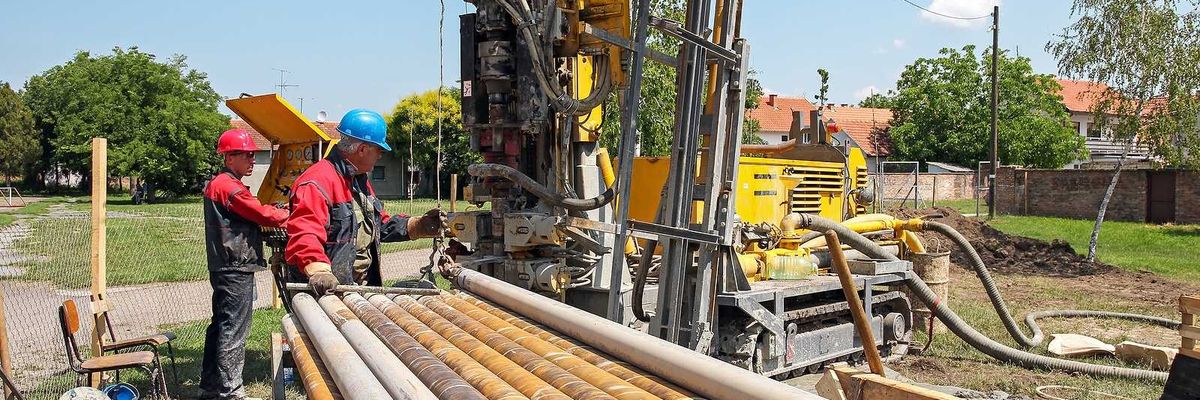greenhouse drivers
The Inflation Reduction Act’s green energy promise is putting Black communities at risk
A proposed tax credit for biomass energy plants could accelerate pollution in Black communities in the rural South, where forests are already being depleted for European energy demands.
In short:
- Biomass plants, which burn wood pellets for energy, emit carcinogens and other pollutants, disproportionately affecting Black and low-income communities.
- The proposed tax credit could subsidize biomass facilities, despite evidence that these plants are more harmful to the environment than coal.
- Over a million acres of forests in the rural South are being cleared for biomass production, worsening health and environmental outcomes for local residents.
Key quote:
"Ultimately, we’re killing the Earth and each other. It’s a false climate solution that leaves Black and brown communities still bearing the brunt of the damage."
— Treva Gear, Georgia activist
Why this matters:
Communities like Adel, Georgia are left with the pollution, loss of green space and the destruction of the very forests we depend on to capture carbon. It’s an ironic twist—clean energy for Europe, while Black communities in the South bear the brunt of the damage. Read more: How Europe’s wood pellet appetite worsens environmental racism in the US South.
Trump plans to dismantle climate funding from key law if elected
Donald Trump announced his intention to pull back unspent funds from the Inflation Reduction Act, a key climate law, should he win the 2024 election, sparking concern over its impact on climate projects, especially in Republican districts.
In short:
- Donald Trump vowed to cancel unused funds from the Inflation Reduction Act, targeting climate and energy programs.
- He floated a government efficiency commission, possibly led by Elon Musk, aimed at reducing government waste.
- The Biden administration has already allocated billions in climate funding, but much remains unspent, creating potential legal battles over clawing back those funds.
Key quote:
“I look forward to serving America if the opportunity arises. No pay, no title, no recognition is needed.”
— Elon Musk
Why this matters:
The Inflation Reduction Act is funneling billions into renewable energy projects, electric vehicles, and cleaner industry across the U.S.—including a lot of Republican-led states that could really use the cash. If Trump succeeds in cutting these funds, it could derail green energy jobs and infrastructure growth in areas that have started to see the benefits. Read more: House Speaker Mike Johnson’s climate change playbook — deny the science, take the funding.
The world is drowning in plastic, with 57 million tons of pollution annually
The world generates an astonishing 57 million tons of plastic pollution every year, spreading from the depths of the oceans to inside human bodies, with two-thirds coming from the Global South, according to a recent study.
In short:
- Researchers found that the Global South produces more than two-thirds of the world’s plastic waste, much of it due to lack of infrastructure and government waste management.
- The study received criticism, however, for not examining the toll of plastic production, which generates planet-warming greenhouse gas emissions and other pollutants harmful to human health.
- Microplastics, from improperly discarded waste, are increasingly found in human bodies, with uncertain health consequences.
- Final negotiations on a global plastics treaty are scheduled for November, aiming to address this growing problem.
Key quote:
“They [microplastics] are in the most remote places ... the peaks of Everest, in the Mariana Trench in the ocean, in what we breathe and what we eat and what we drink.”
— Costas Velis, University of Leeds environmental engineering professor
Why this matters:
All eyes are on the global plastics treaty negotiations in November, as world leaders try to rein in this crisis before it spirals further. If they succeed, we could finally see a coordinated effort to curb this plastic tidal wave.
Read more: Scientists say health should be the core of global plastic treaty.
Living near fossil gas leaks can seriously harm your health
Scientists use leaked methane to map toxic health threats in affected communities.
In short:
- Communities in the Permian Basin are experiencing health risks from pollutants released by oil and gas production.
- Studies link these pollutants to premature deaths and childhood asthma, with a significant annual health bill in the US.
- New technologies are helping to detect and map methane leaks, potentially reducing exposure to harmful emissions.
Key quote:
"The highest concentrations of these non-methane hydrocarbons are in gas at wellheads, which also have the highest emission rates."
— Amy Townsend-Small, professor and climate scientist at the University of Cincinnati
Why this matters:
Living near fossil gas infrastructure poses severe health risks, including respiratory issues and cancer. Detecting and reducing methane emissions can improve air quality and public health outcomes. Read more: Oil and gas production responsible for $77 billion in annual US health damages.
Lawmakers push to penalize pipeline protests
Lawmakers, driven by fossil fuel donors, are working to expand criminal penalties for pipeline protests under new federal safety regulations.
In short:
- New federal pipeline safety legislation may significantly increase penalties for pipeline protests, broadening the definition of "attacks" on pipelines.
- The House Energy and Commerce Committee’s draft reauthorization bill could make even attempting to impair pipeline operations a felony.
- Advocates worry the vague language could criminalize peaceful protests, threatening free speech and dissent.
Key quote:
“What rights do these corporations have to come through our communities and wreak havoc and not be held accountable for anything they do?” — Anne White Hat, Indigenous activist.
Why this matters:
Increased criminalization of protests could suppress environmental activism, hindering efforts to hold fossil fuel companies accountable for potentially dangerous pipeline projects that threaten public health and safety. Read more: Why Indigenous women are risking arrest to fight Enbridge’s Line 3 pipeline through Minnesota.
Effort to reduce plastic waste in New York gains momentum
New York State is on the verge of passing legislation to significantly reduce single-use plastic waste, potentially setting a precedent for other states.
In short:
- The proposed Packaging Reduction and Recycling Infrastructure Act aims to cut plastic packaging by 50% over 12 years by pushing companies to use sustainable alternatives or pay fees.
- Fees collected would fund recycling and waste management infrastructure, potentially bringing New York City $150 million.
- The bill also seeks to ban 19 of the most toxic chemicals in plastic packaging, following examples set by other states like California and Maine.
Key quote:
“We must go after the producers who contribute to the plastics crisis and not place the burden on individuals.”
— Elijah Hutchinson, executive director of the Mayor’s Office of Climate and Environmental Justice
Why this matters:
This legislation addresses the escalating plastic waste crisis, aiming to reduce landfill waste by six million pounds daily. Its success could inspire similar actions nationwide, promoting healthier environmental practices and reducing public health risks from microplastics. Read more: California moves forward with landmark plastic waste reduction law.
Democrats investigate oil execs' support for Trump campaign funds
Congressional Democrats are probing oil industry executives about their potential contributions to Donald Trump's campaign in exchange for favorable policies.
In short:
- Senate Democrats are probing nine oil companies and trade associations regarding potential discussions on industry-friendly policies in exchange for campaign donations to Trump.
- Letters were sent to companies including Chevron, Exxon Mobil, and Occidental Petroleum, asking if they provided Trump with policy documents for a potential second term.
- This investigation follows accusations of collusion between Big Oil and OPEC to keep oil prices high.
Key quote:
“Such an obvious policies-for-money transaction reeks of cronyism and corruption.”
— Senators Whitehouse and Wyden
Why this matters:
This investigation focuses on concerns over political corruption and potential collusion in the oil industry, which has the potential to influence elections as well as impact both environmental policies and consumer gas prices. Read more: “Code Red” for climate means reducing US oil and gas production.









